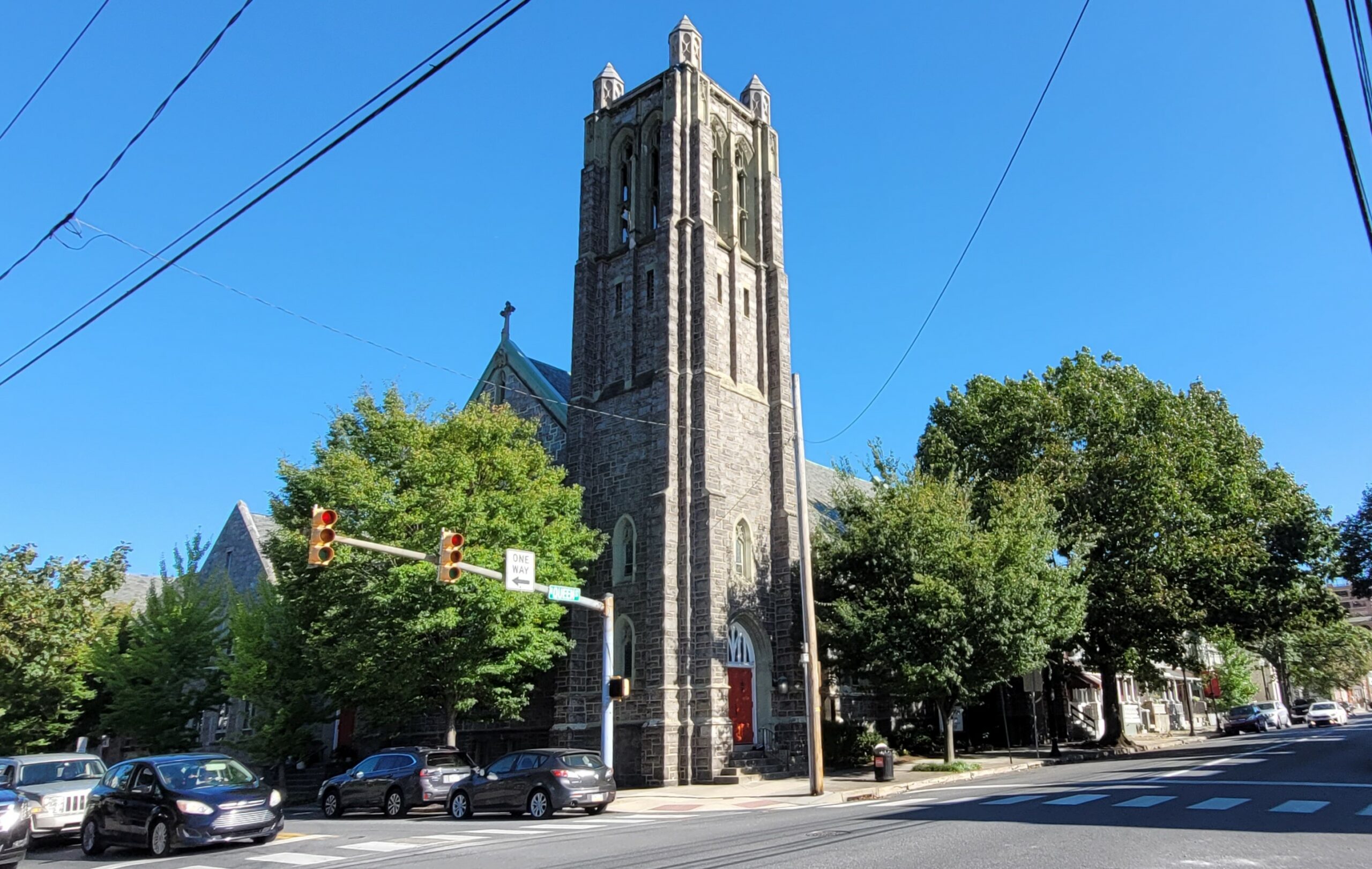The leaders of the Lancaster County Redevelopment Authority and Lancaster County Homelessness Coalition will ask City Council tonight to give them a 60-day extension — that is, until Feb. 1 — to open the low-barrier shelter planned at Otterbein United Methodist Church.
They will also advise City Council that the projected budget for opening and operating the Otterbein shelter has more than doubled from just over $1 million to $2.35 million.

That’s due to the $1.4 million in renovations needed to bring the site up to code, according to an extension request and project plan sent to City Council in advance of the meeting.
The main necessity is the installation of a sprinkler system, said Justin Eby, the authority’s executive director.

Council President Amanda Bakay asked Eby to appear before council this evening after the city learned that the 40-bed shelter will not be able to open by this Friday, Dec. 1. Planning to join him is Deb Jones, who heads the coalition as the authority’s Director of Human Services.
Dec. 1 was the target date in a joint agreement between the city and redevelopment authority that City Council approved this past April. It committed the city to paying $800,000 in American Rescue Plan Act funds to the authority to support the shelter, on condition that the authority provide “a detailed project budget” and evidence of sufficient funding by Sept. 30.
That deadline, like Dec. 1, was missed. Last Wednesday, at Bakay’s request, Eby notified the city in writing that the authority was out of compliance with the terms of their arrangement.
Further complicating matters, the existing 40-bed low-barrier shelter within the city relocated last week after the failure of the boiler at its previous location, Ebenezer Baptist Church. The Lancaster County Food Hub operates it under a contract with the redevelopment authority, which provides the funding.
The shelter is now housed at the former Benjamin Roberts store on North Prince Street. The move has increased its operating cost more than sixfold, the redevelopment authority said, from $2,400 a month at Ebenezer to $15,900 at the Benjamin Roberts site. Driving the increase is higher rent ($10,000 without utilities vs. $1,700, with utilities), utilities ($2,600) and the rental of portable toilets and sinks, according to the extension request.

The costs “far exceed the available resources” unless City Council approves more ARPA funds, the authority says.
The shelter was opened at Ebenezer in 2020 as an emergency measure during the pandemic. The church site does not have a sprinkler system.

Meanwhile, the redevelopment authority is still seeking a third-party provider to operate the Otterbein shelter. It issued a request for proposals to find one, but got no responses. Bakay said she suspects the maximum the RFP said was be allocated to cover operational costs — no more than $307,000 a year — was simply too skimpy.
Currently, the homelessness coalition is in “active discussions” with four potential shelter operators, the extension request says: Ebenezer Baptist Church, YMCA of the Roses, Penn Medicine Lancaster General Health and “a new nonprofit collaboration.”
Providers have expressed concerns over “mission drift, capacity and funding limits,” it says, adding: “Both (the coalition) and City of Lancaster staff assured (sic) that funding limits could be resolved as a provider is secured.”
While the city has committed significant funds to shelter capacity, it doesn’t have the resources to bear the whole burden, Mayor Danene Sorace said: The county, through the authority, needs to chip in a reasonable amount, too.
The whole process, the multiple delays and setbacks, “has been very frustrating,” she said.
Bakay said she and her colleagues will have plenty of questions for Eby.
“I personally am curious to hear his assessment of how we got to this point,” she said.
(Editor’s Note: The second paragraph of this article has been amended to clarify the parameters of the Otterbein shelter budget.)






